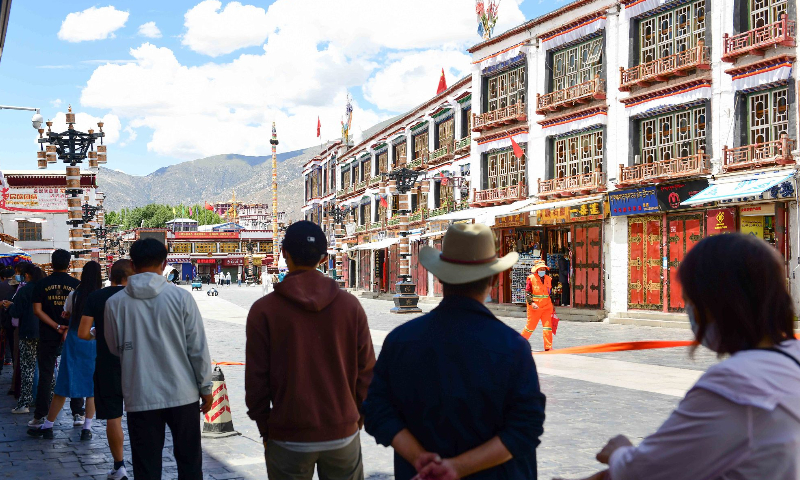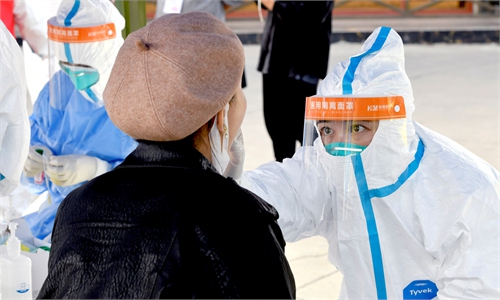Xizang resumes normal life and production after 2-month fight against COVID outbreak

Residents in Lhasa, capital of Southwest China's Xizang (Tibet) Autonomous Region, line up to take COVID-19 nucleic acid tests on August 9, 2022. Photo: VCG
After two and a half months of arduous fight against a COVID-19 outbreak, Southwest China's Xizang (Tibet) Autonomous Region vowed to restore normal life and production in an orderly manner, putting an end to closed management for residential communities.
Residents in the region will be gradually allowed in and out of communities that had been previously sealed off or partly restricted. Access restrictions for couriers, maintenance, food delivery and other service personnel will also be lifted.
Working units across the region will resume normal business and production, as well as agricultural productions. Schools, medical institutions and government services will also resume operations.
Restaurants, supermarkets, and farmer's markets will reopen, the same goes for public venues including libraries, art galleries, cultural centers, and places of religious activities.
Scenic spots and resorts will gradually reopen. Meanwhile, hotels and accommodation industry are encouraged to resume business. Entertainment venues such as cinemas and Internet cafes will also resume business.
Trains, airplanes, buses, taxis and other public transport and all kinds of vehicles will be allowed to regain access on roads. Postal expresses will resume processing of deliveries and other operations.
Xizang recorded 22 COVID-19 cases on August 8, marking an end to 920 days of zero COVID infection in the region.
Xigaze, where 22 cases were reported, put the whole city under static management in no time, with nobody allowed to enter or leave the city so as to prevent spillovers. Lhasa, the capital city of Xizang, will implement static management in medium and high-risk areas.
Recently, China's top medical experts and state media repeatedly underscored the significance of sticking with the dynamic zero-COVID policy, saying that China's approach is the lowest-cost epidemic prevention model in the world, especially in comparison with the "lying flat" approach adopted by the West.
Liang Wannian, head of China's COVID response expert panel under the National Health Commission, warned that if left uncontrolled, the epidemic would cause more infections, more deaths, squeezing the country's medical system and resulting in more serious illness due to the lack of medical resources.
Global Times


